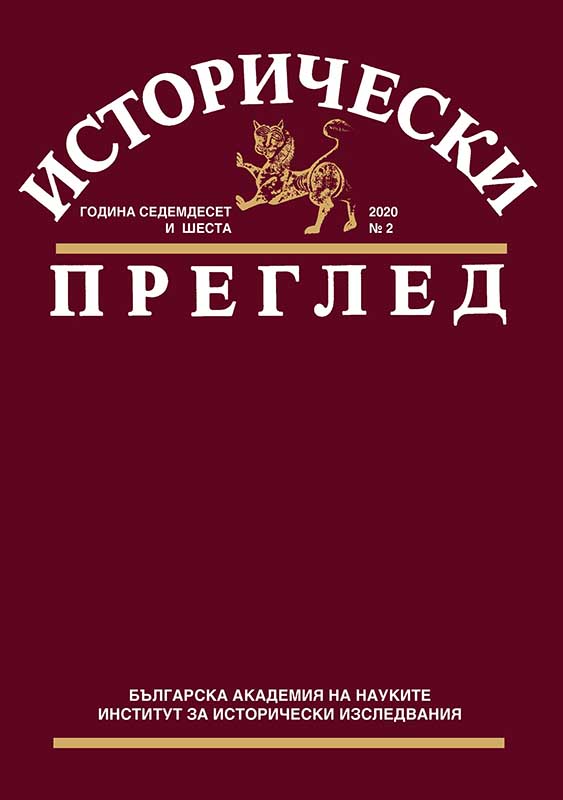Робовладелците в османска София: социално-религиозен състав и господарски стратегии (средата на XVI – средата на XVIII век)
Slaveholders in Ottoman Sofia: socio-religious profile and slaveholding strategies (mid 16th – mid 18th Centuries)
Author(s): Olga TodorovaSubject(s): History, Cultural history, Economic history, Political history, Social history, Modern Age, Special Historiographies:, 16th Century, 17th Century, 18th Century, The Ottoman Empire
Published by: Институт за исторически изследвания - Българска академия на науките
Keywords: Ottoman Empire; Sofia; domestic slavery; slaveholders; social structure;
Summary/Abstract: This study tries to delineate the socio-religious profile of Sofia slaveholders in mid-16th – mid-18th centuries mainly on the basis of relevant documents found in the local Sharia court’s registers dating from the same period. The analysis of a sample of 211 slave-owners reveals, first of all, that slaveholding in Ottoman Sofia was relatively widespread, comprising not only the provincial askeri elites but also the representatives of the lower strata of the askeri group, as well as ordinary citizens – traders and craftsmen, including (although, on a very modest scale) non-Muslims. Secondly, the examination of the documents in the sample showed a slight preponderance of cases, in which slave owners and ex-owners proved themselves supportive and helpful in one way or another to their slaves and ex-slaves. In this context the symbolic value of the slaveholding as an emblem of status and piety has been discussed, especially in connection with the phenomenon of some relatively poor and/or newly-Islamized people joining the ranks of slaveholders.
Journal: Исторически преглед
- Issue Year: 2020
- Issue No: 2
- Page Range: 5-46
- Page Count: 42
- Language: Bulgarian
- Content File-PDF

